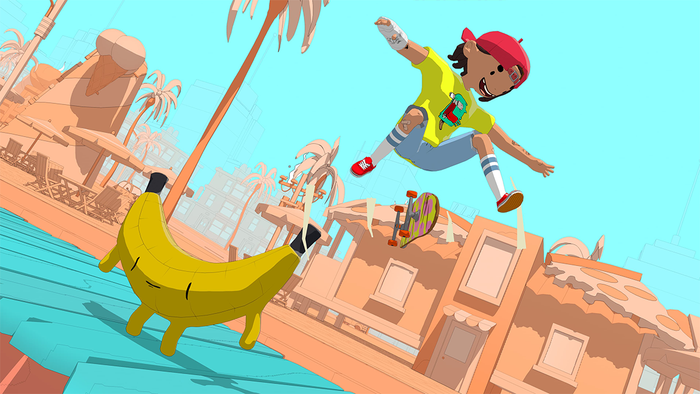This Week in Video Game Criticism: From Alaska to Beyond Earth
This week, our partnership with game criticism site Critical Distance brings us picks from Eric Swain on topics ranging from Civilization: Beyond Earth to Native Alaskan folklore-inspired title Never Alone.

This week, our partnership with game criticism site Critical Distance brings us picks from Eric Swain on topics ranging from Civilization: Beyond Earth to a critical reception of Native Alaskan folklore-inspired title Never Alone. BioShock and Beyond Earth BioShock is back in the critical eye. Anthony Burch at his blog No Wrong Way to Play decides to see what the consequences of the little sister decision is by never using any of the Adam earned from making a moral choice and finds the game lacking in its response. Meanwhile, Rick Stanton at Rock Paper Shotgun looks at the legacy of Looking Glass Studios in regards to the BioShock series. On the other half of the header, Katherine Cross writing for Polygon finds that Beyond Earth can't top Alpha Centauri. Peter Christiansen writing for Play the Past, focuses on the Beyond Earth tech trees and notes that while in many ways it is no different than Civilization's determinism approach to technology, in others it matches with recent historical understands of Actor Network Theory. And Errant Signal's Campster feels the game develops identity issues while straddling Civilization and Alpha Centauri's different styles and themes. AAA Themes Jamie Patton finds the Assassin's Creed series through III to fail by creating an everlasting present of anti-colonialism values that devalues actual history and our ability to change for the better. Romance author Ruby Duvall takes and does not take issue with a Dragon Age: Inquisition side quest dealing with a character liking a romance serial and the serial's inclusion as part of the greater world of Dragon Age. Looking at Bioware's other major property, Dara Khan at Videogameheart thinks through the theme of transhumanism being presented in Mass Effect's final choice and finds it doesn't mesh with what the rest of the series has been about. At TransGamer Thoughts, Heather Alexandra explores at one of the most underlooked games of the past few years, Binary Domain, and how it deals with AI and what it means to be human. Meanwhile, George Mylonas looks to a more recent game, Alien: Isolation, and how it functions through the research done about the horror genre. Interactive Fiction You may remember a few weeks ago we posted a piece on Alter Ego by The Digital Antiquarian. His wife, Dorte, has written a follow up from the point of view of a woman playing the game as a woman. Later that week, he focused on what looks like the final game in his "digital book" series, 1987's Portal. It doesn't look like something that would be out of place in the modern day's more avant-garde Interactive Fiction scene. Javy Denton muses on driving alone at night and how Glitchhikers nails the need to talk to someone in the wee hours, even if it's just other parts of yourself. The Feel of the Game At The Butter, Brian Oliu talks about the feel of being the superstar that NBA Jam evokes. It's not about winning or losing, but putting on the most amazing basketball show possible. In The Binding of Issac: Rebirth, one starts off with a normalish looking body and by the end has transformed into a monstrous blob of flesh. At PopMatters, G. Christopher Williams explains how it is a statement of freedom in a way, "free from established rules and stricture, free to continue to grow into something other than what others desire it to be." In his review of Never Alone, Daniel Starkey comments on how happy he is, as an American Indian, that any tribe would get a game made in conjunction with them to valorize their history and beliefs as "an interactive piece of folklore." And Cara Ellison, in her NSFW column at Rock Paper Shotgun, chats and laughs with some real world lesbians about the hilarious failures of Girlvania, an 'All-Girl Sex Simulation'. On Design Our own Zach Alexander goes back to a notable title in the mobile battle monster game genre, Puzzles and Dragons, and digs into its exploitative practices against the genre uninformed, likening much of it to capsule machines. Also, the Extra Credits crew praises the Dark Souls series for its approach to scalable difficulty. Criticism on Criticism Nick Capozzoli comes back to his own blog to unpack the recent statements about opinion and objectivity of Youtuber Total Biscuit -- how, when boiled down, the complaints always seem to be, "Why Wasn't a White Guy Consulted?" Brendan Keogh decides to return the favor to Darius Kazemi and review his book on Jagged Alliance like Kazemi did to his book two years ago. In it, Brendan continues the conversation about approach towards long-form criticism. Melody of Melody Meows About... talks about the need to defend oneself from the purposefully compulsive nature of many of today's video games. They are designed not just to be enjoyable, but all-consuming to the detriment of everything else. Wrapping Up Remember, we are always accepting suggestions for our weekly roundups. Just submit them via our email or @ message them to us on Twitter. If you can, please support us and the good work we do here at Critical Distance through our Patreon. If you can't afford it but still want to help, please signal-boost our efforts.
About the Author(s)
You May Also Like








